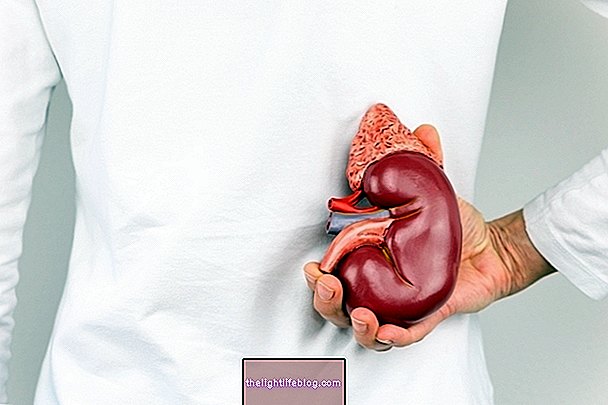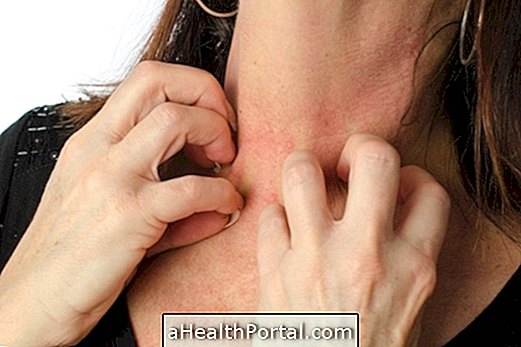Tongue cancer is a rare type of head and neck tumor that can affect both the upper and lower parts of the tongue, which influences the perceived symptoms and the treatment that must be followed. The main sign indicating cancer of the tongue is the appearance of red or whitish spots on the tongue that hurt and that do not improve over time.
Although rare, this type of cancer can appear more frequently in adults, especially those who have a history of smoking or who do not have adequate mouth hygiene.

Main symptoms
In most cases, signs and symptoms that may be indicative of cancer on the tongue are not perceived, being noticed only when the cancer is already at a more advanced stage, especially when this malignant change reaches the base of the tongue, which makes identification any more difficult sign.
The main signs and symptoms indicative of cancer of the tongue are:
- Pain in the tongue that does not pass;
- Appearance of red or white spots on the tongue and in the oral cavity, in some cases, which can also be painful;
- Discomfort to swallow and chew;
- Bad breath;
- Bleeding on the tongue, which can be noticed mainly when biting or chewing, for example;
- Numbness in the mouth;
- Emergence of a lump on the tongue that does not disappear over time.
As this type of cancer is uncommon and the symptoms are usually only noticed when the disease is already at a more advanced stage, the diagnosis ends up being late, and the suggestive signs are often identified during a dental appointment.
After identifying signs and symptoms suggestive of tongue cancer, the general practitioner or dentist may indicate that tests to confirm the diagnosis are performed, especially the biopsy, in which a sample of the lesions is collected and sent to the laboratory for analysis. the characteristics of the cells in the site, allowing the doctor to identify cellular changes suggestive of cancer.
Causes of tongue cancer
The causes of tongue cancer are not yet well established, but it is believed that people who do not have good oral hygiene habits, are active smokers, are alcoholics, have a family history of oral cancer or have already had other types of cancer oral cancer have a higher risk of developing tongue cancer.
In addition, infection with the human papillomavirus, HPV, or Treponema pallidum, the bacterium responsible for syphilis, can also favor the development of tongue cancer, especially if this infection is not identified and treated correctly.
How the treatment is done
Treatment for tongue cancer depends on the location of the tumor and the extent of the disease, and surgery is usually performed to remove the malignant cells. In case the cancer is located in the back or in the lower region of the tongue, radiotherapy to eliminate the tumor cells may be recommended.
In the most advanced cases, the doctor may recommend a combination of treatments, that is, he may indicate that chemotherapy, radiotherapy, immunotherapy and surgery should be carried out together.
Was this information helpful?
Yes No
Your opinion is important! Write here how we can improve our text:
Any questions? Click here to be answered.
Email in which you want to receive a reply:
Check the confirmation email we sent you.
Your name:
Reason for visit:
--- Choose your reason --- DiseaseLive betterHelp another personGain knowledge
Are you a health professional?
NoMedicalPharmaceuticalsNurseNutritionistBiomedicalPhysiotherapistBeauticianOther
Bibliography
- NATIONAL ORGANIZATION FOR RARE DISEASES. Tongue Cancer. Available in: . Accessed on 29 Nov 2019
- MEMORIAL SLOAN KETTERING CANCER CENTER. Tongue Cancer. Available in: . Accessed on 29 Nov 2019
- THE ORAL CANCER FOUNDATION. Oral Cancer Facts. Available in: . Accessed on 29 Nov 2019
























